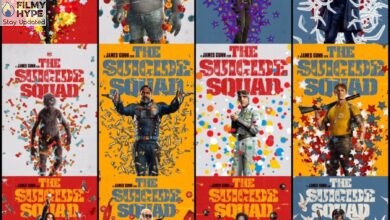Mission: Impossible – The Final Reckoning Review: The Right Farewell to Ethan Hunt
Mission: Impossible – The Final Reckoning is the highlight for the general public at the Cannes Film Festival 2025. Tom Cruise hugs for the last (?) vault Ethan Hunt, one of the characters who most contributed to making it what is still for everyone: the last true Hollywood star, the last actor able to capture the public’s attention like no other. A farewell in style, if it is, in a film very different from all the others in the saga, in many elements. Mission: Impossible – The Final Reckoning is one of those films that he risks being more interesting and compelling for everything that revolves around him, for how it was made, and for what it tries to say indirectly, which is then inside its more than two and a half hours of duration. It would be said very little, considering that the first half hour is a gigantic summary of what happened in Dead Reckoning, before the film finally manages to say and do something of its own.
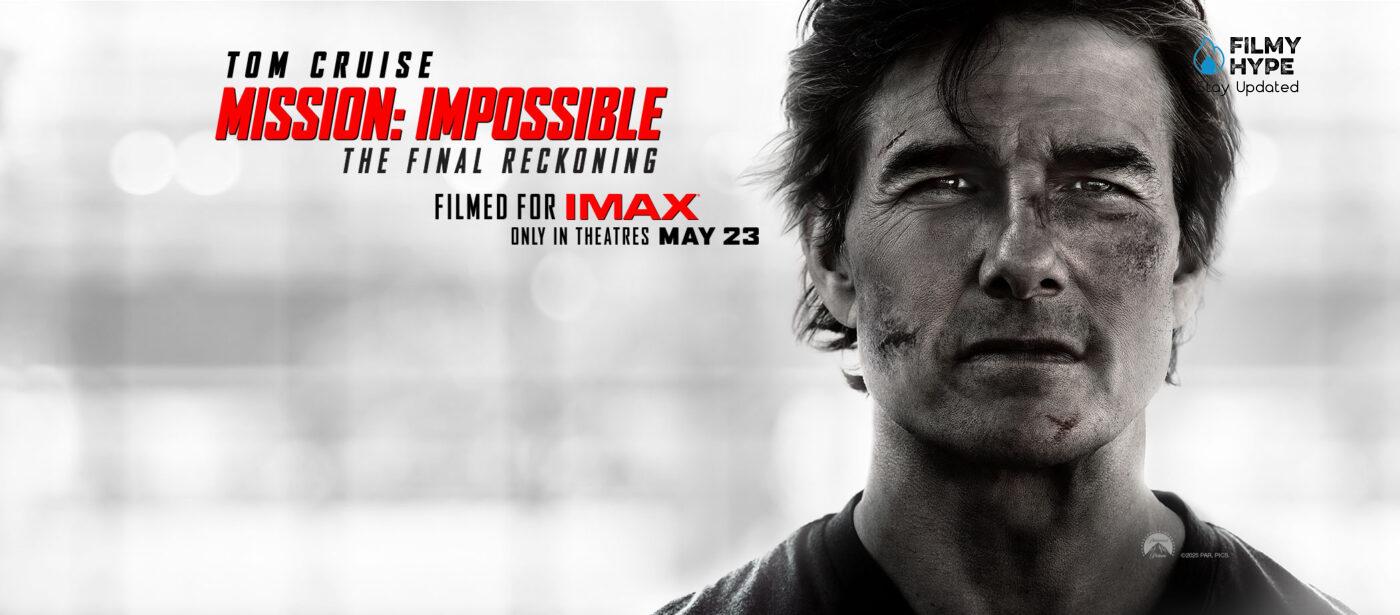
Of something characterizing, which makes it distinct and unique compared to everything that came before, this eighth Mission: Impossible starring Tom Cruise has very little. Essentially, for two reasons. The first is that when it was conceived, that is, just before the pandemic, the prevailing trend in Hollywood was the more than post modern one of treat each story through metatextuality, that is more than making new things happen, mentioning, paying homage, parodying what came first pretending it was a real novelty. An operation that denotes a crisis of ideas and that hardly manages to go beyond the contentment of fans, caressed in their ego by having understood this or that reference. Almost thirty years ago Mission: Impossible cinematographic first came out, a controversial object in the eyes of the fandom (for the choice to transform one of the historical protagonists of the original television series into one of the bad guys) but of great success, first true consecration of Tom Cruise as a producer as well as main interpreter.
Mission: Impossible – The Final Reckoning Review: The Story Plot
The eighth chapter starts again immediately after the events of Mission: Impossible – Dead Reckoning Part One, when Ethan had lost his beloved Ilsa, at the hands of the ruthless Gabriel (Esai Morales), Ethan’s longtime enemy, in all respects the faithful servant of the Entity, a terrifying AI capable of destroying the world, infiltrating the security systems of the major powers. Now, Ethan and Grace (Hayley Atwell) and Benji (Simon Pegg) go to London together with Grace. The target? Finding the security key that allows you to deactivate the Entity, but it is not so simple, in fact, in the middle, there is Sevastopol, the same Russian submarine sunk by the Entity at the beginning of the previous film in the Bering Strait. There is the real key on board, but how can we get there? While the President of the United States, Erika Sloane (Angela Bassett), has to decide what to do, Ethan and the others will be engaged in a race against time to block Gabriel and circumvent the Entity’s moves, now increasingly out of control. The eighth and last Mission: Impossible bears the signature of Christopher McQuarrie, one of the most loyal to Tom Cruise, who, at the dawn of 62 years, does not want to know about giving up.
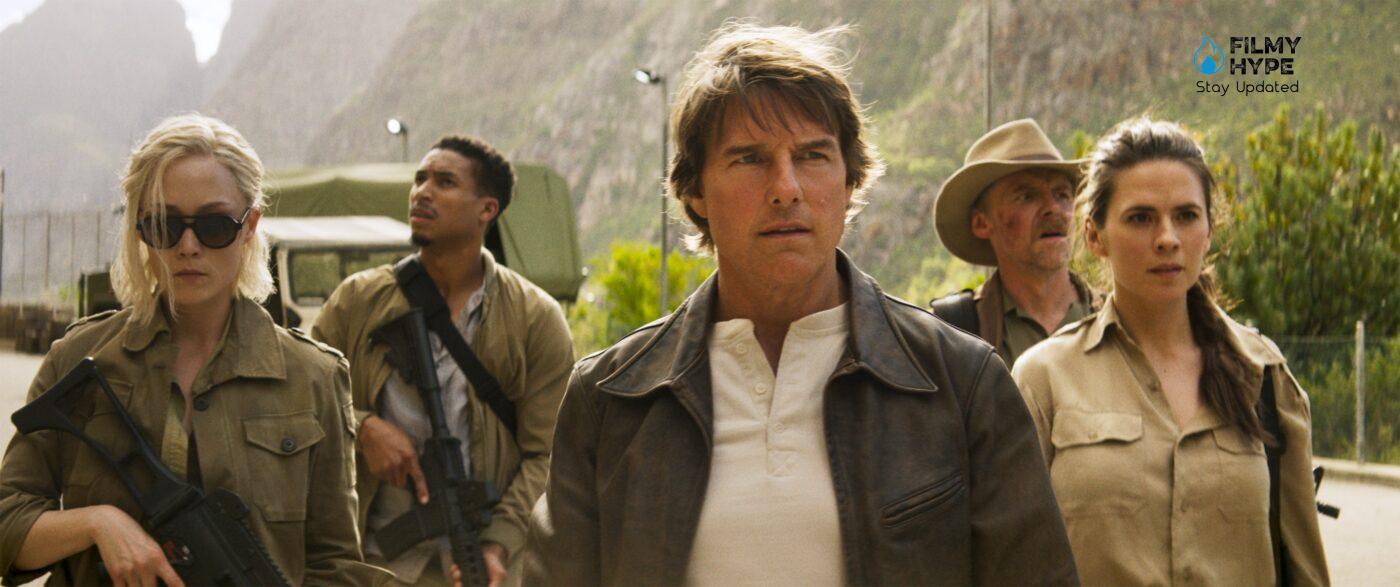
The screenplay, written by McQuarrie together with Erik Jendresen, in the first part operates a sort of summary, real and veiled. It shows us the past and the immediate future compared to the last adventure, but then positions itself within a few minutes following a much more minimal process, a crescendo that then has in the last part, a sort of concentrate of everything it has always made the universe Mission: Impossible one of a kind. Ethan Hunt is grappling with two enemies who seem to know even before him everything he will do, and point not at him, but at those who love. Mission: Impossible – The Final Reckoning is therefore interesting for how he puts Ethan in front of his limits, which are magnified as the film proceeds, and we realize that Cruise has agreed to make it a creature of greater experience, even if obviously of less strength and speed. But above all, here we find a neo-apocalyptic tone, an end of the world much closer than all the other times, with an atmosphere presaged not only by death, but also by solitude, the one to which good or bad Hunt had managed to escape for a lifetime or almost thanks to his team. Here, however, he is often alone.
Mission: Impossible – The Final Reckoning Review and Analysis
Mission: Impossible – The Final Reckoning sows here and there some clues and giveaways to all the previous chapters, it’s a mix of modern Hollywood (artificial backgrounds, good quality CGI, never too bloody action) and what made Cruise the Western Jackie Chan: sequences on the verge of suicide on set. Tom Cruise embraced this philosophy of life at the beginning of his career, he was interpenetrated and there are at least three absurd sequences even by his standards here, in a film where the elements of nature are the perfect outline of a race against time: water, ice, fire, air, bare earth, he who runs like crazy, while the world around him is about to collapse definitively. The AI theme could be developed more boldly, that must be said. These last two Mission: Impossible have contented themselves with invoking him as a sort of man-made demon, a Skynet on sale. Then there is Morales’ Gabriel Morales, an underrated actor, but here he is kept much more on a leash than in the past. Yet, there is something powerful in this film, there is a hero and the end of his adventure, there is the world that has changed since 1996 when Ethan Hunt appeared in our lives.
There is the humor to which the saga has accustomed us, but without exaggerating, new supporting actors are added, and others are greeted. Of course, Rebecca Ferguson’s Isla is missing like the air, perhaps it was not the case to eliminate it like this, she knew how and why she always represented everything that no Bond Girl has ever really been: the other half of an impossible apple to complete for Ethan. The ending is explosive, but also painful, past and present collide, but the feeling remains, the doubt, on the contrary, that Tom Cruise, always perfect in giving credibility even to the most illogical sequences, perhaps is not entirely sure of wanting to close it here. Of course, time is against him; he reaches everyone, even Ethan Hunt, in the end. Mission: Impossible – The Final Reckoning, when it ends, with almost 3 hours flying like a Jet, it leaves a big magnum. We had become accustomed to this nicer, more human, less cool, and much more connected also to the slapstick cinema of the beginning of the century, to the oriental action-comedy, to the videogame. How we are going to love action again now that it’s all over is not known. Of course, there will never be a remake or reboot, at least Hollywood will have to spare us.
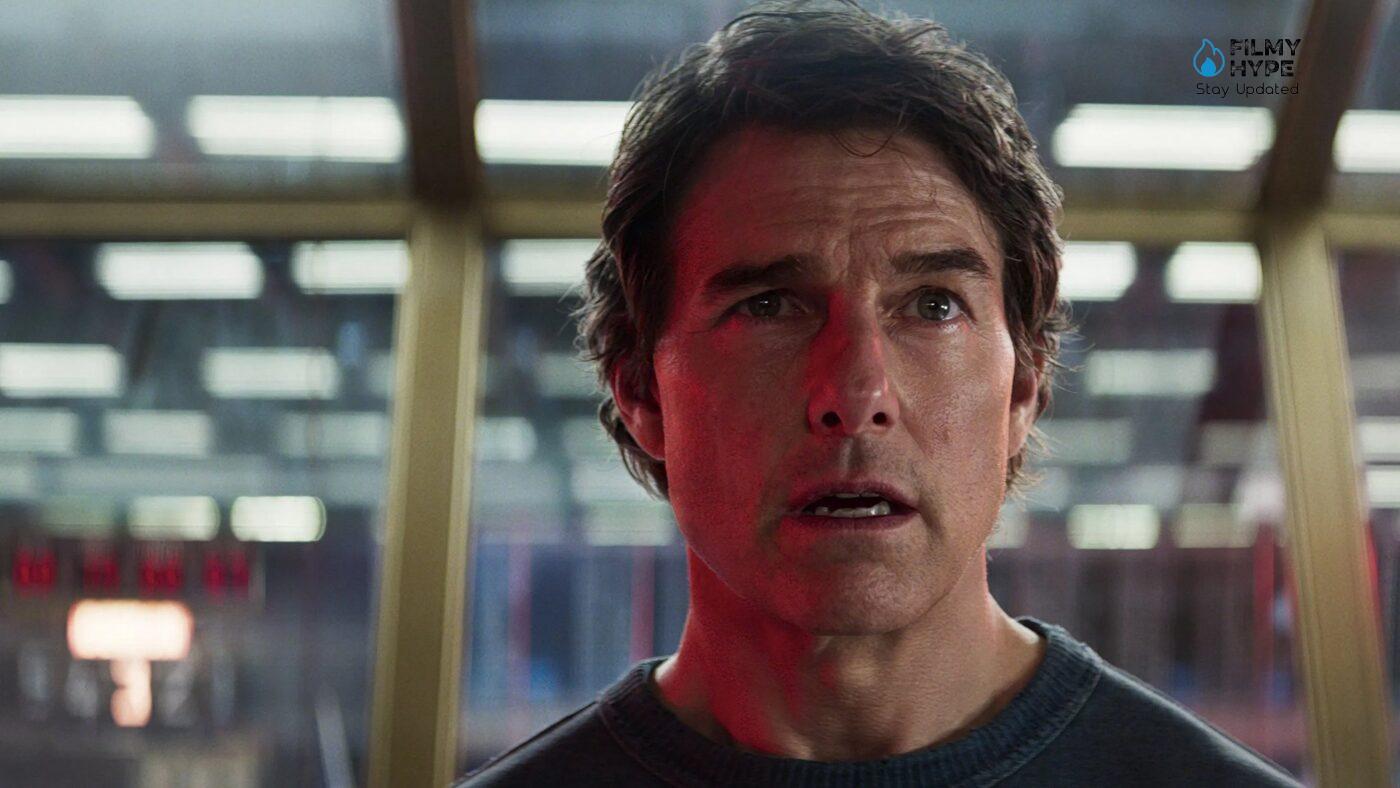
Being, on paper, the final chapter of a narrative cycle started – retroactively – in 1996, McQuarrie gathered for the occasion faces of past chapters, from Henry Czerny ad Angela Bassett, in addition to the usual team composed of Ving Rhames, Simon Pegg is Hayley Atwell with the addition of Pom Klementieff who in the seventh feature was on the side of the bad guys. The human antagonist of the previous films has also been reconfirmed, Esai Morales, in the role of the mysterious Gabriel, the least accomplished character of the entire operation despite the general attempt to connect all the elements left open and give definitive answers (sometimes with too many smudges, as in the case of a frankly free reference to the first episode that does not add anything particular), with some details that remain vague exactly as in Dead Reckoning, perhaps a symptom of a less precise writing than what was the director’s trademark, here sometimes forced to change the plot itself according to available locations and other elements (including the stunt proposed by the main actor).
And then there is him, Cruise, perhaps the last classic Hollywood star, who in recent years has turned into an authentic promoter and defender of the experience in the theater and has used his cinematographic roles to reiterate the importance of the human factor in an industry increasingly obsessed with digital, first in Top Gun: Maverick and then in this diptych where, increasingly vulnerable (and with the age of registry that begins to show the signs on a face that has seen several on these sets, including breaking a foot during the filming of the sixth film), he faces chest the artificial intelligence that wants to annihilate the world he is used to. The subtext (which in reality is not underneath) adds an extra layer of sincerity in the context of the action scenes, which the actor has always preferred to shoot without the use of stunt doubles, transforming them into the stylistic code of the franchise to the point that for the release of the seventh chapter there was a video with the backstage of one of those moments, commented by McQuarrie with the phrase “The only thing that scares me the most is what we have in mind for the eighth.” Without revealing too much, we can say that he was right.
At some point, we talk about life as the sum of a series of infinite choices (as is known, IMF agents must choose to accept their missions), and how Ethan Hunt was predestined to do what he did in the course of the saga. Speech that on the one hand would emphasize the nature twilight of these last two films, more melancholy also in light of what happened in Hollywood and influenced the approach of Cruise and McQuarrie, but on the other, it also alludes to the concrete possibility that the franchise does not stop here, despite the title. If so, welcome, but with a return to the origins different from that proposed here: net of the increasingly amazing evolution of macro sequences, the charm of the saga was also in the stylistic variety brought by the various directors, an element that has been a little’ lost from Rogue Nation. Once the great narrative arc is over, it would perhaps be necessary to restore a more contained approach. Provided that the protagonist/producer chooses to accept it.

The second reason is purely personal: despite being Tom Cruise almost immortal, he has reached an age in which the very difficult balance on which Mission: Impossible stands (i.e. seeing on the screen something theoretically impossible but made credible, almost likely by the caliber of the protagonist and who interprets it) is even more complicated to maintain. The arrival and then the establishment of McQuarrie as the official director of the saga, however, had deluded us that that perfect combination of spectacularity and lightness, simplicity and effectiveness could be easily maintained. It is not so: Dead Reckoning had been a misstep, however interesting. A film that fell into the most obvious error of all: get carried away by too big a story, too complicated, which left the immediacy of the franchise on the street. However, it was also a film with memorable passages (the whole lock in the train car), capable of evoking the atmosphere and fears of our time, too early. In 2025, the second part finally arrives, which can instead enjoy its self-fulfilling prophecies. Now, a sentient technological entity does not seem like a blockbuster gimmick, and that paranoid contrast of nuclear superpowers is not so démodé.
Corrected running after the previous flop, The Final Reckoning looks to an even more remote past than it mentions and pays homage to itself, with a return of militarism, flags, patriotism, but above all of the inevitable rhetoric of the chosen one. The Final Reckoning – incredibly – chooses the most banal plot of all, that of the chosen one. From his he has the fact that there is no more suitable star to play an elected Tom Cruise, to date the only man who seems able to save, if not the future of the world, at least that of cinema. The script of The Final Reckoning is a succession of moments in which Ethan Hunt is gradually recognized and proclaimed as “the chosen one”, the chosen one, the chosen one, the only man who can save both his team and all humanity. Applause comes to the tough face of what is perhaps the most famous member of Scientology to play a man called a fight a messianic techno-sect that is infiltrating all the governments of the world, in the hope of unleashing a nuclear conflict and wiping out mankind. In short, the most classic of the plots of a vintage James Bond, even if The Final Reckoning stumbles on the same defects as the farewell to the role of Daniel Craig.
During the vision, I thought about No Time to Die several times, how both films are a giant sum of what made that interpreter important in that role. Final Reckoning, though, does not dare to press the big red button with “the end” written on it. The lack of clear decisions and precise cuts is a big limitation of a film. The courage not to jump into the action would have benefited and let the public put together the pieces of what happened before, without the first half hour being more than an exhibition. And to say that Mission: Impossible has always made its business card its spectacular openings, there is nothing memorable before the opening credits of The Final Reckoning. It is lazily propagated a montage of the characters and iconic sequences of the previous chapters. It is also missing the courage to sacrifice something on the street (in terms of cuts in minutage, excellent deaths, celebrations for everything and everyone) to make the film more incisive. It is not that it lacks passages that live up to expectations; on the contrary. Although McQuarrie’s direction is less precise and clean than usual, stunts like the one with the two biplanes alone are worth the ticket price.
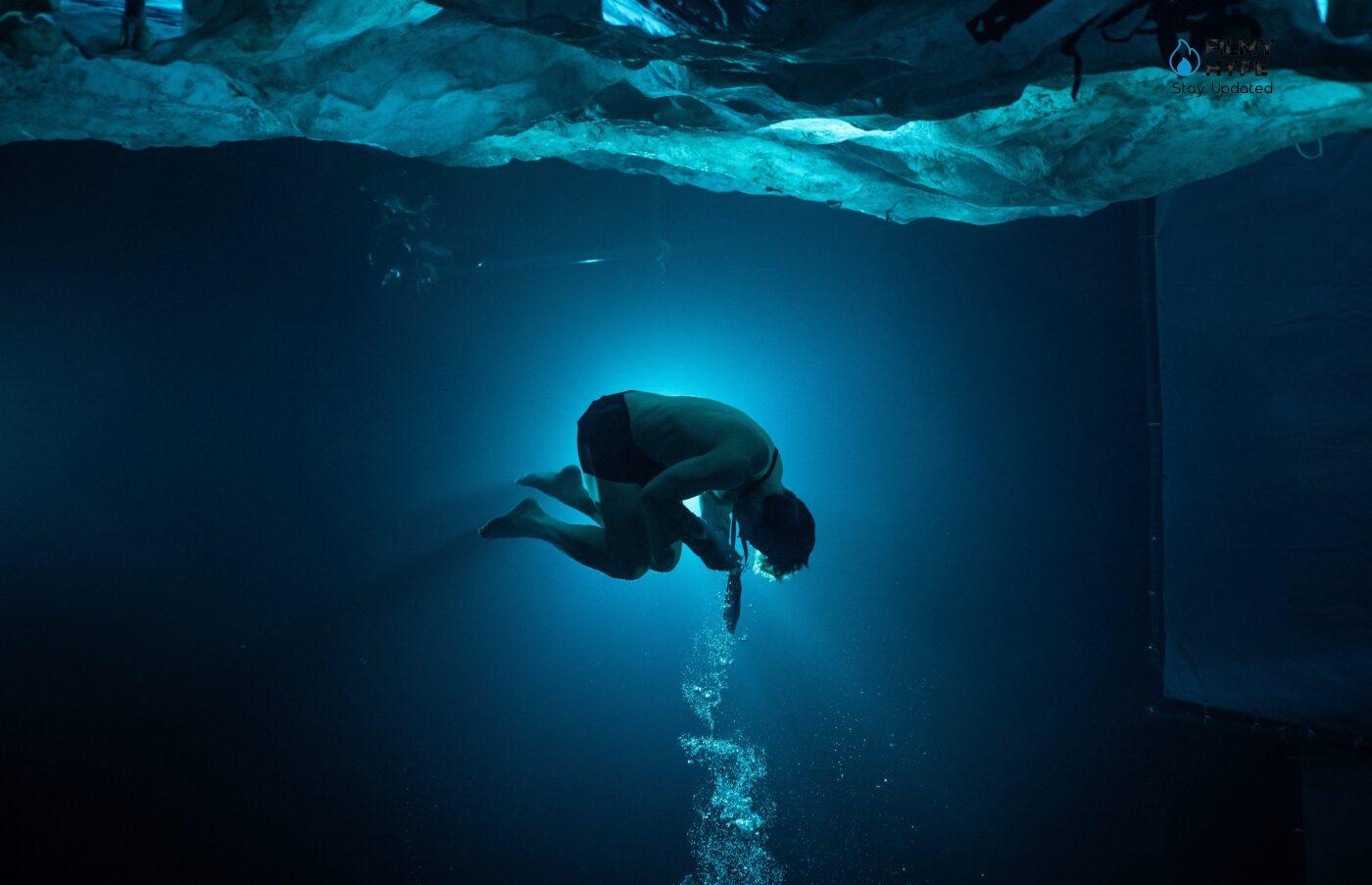
However, the enormous work behind these sequences does not always work on the screen: the long scene of the submarine, for example, is far from making the viewer suspect the incredible technical difficulty that hides. McQuarrie and Cruise try to redo the scene of the rotating corridor of Inception, but underwater: incredibly, Nolan wins for simplicity, impact, and visual cleanliness in the narration, which are usually the stylistic features of McQuarrie. In short, what is good (a handful of beautiful stunts, the concert work of Ethan’s team scattered at the four corners of the globe, a couple of cameos that turn into weight contributions) is counterbalanced by many passages that land very badly. It is as if, on balance, The Final Reckoning was a film made of great action scenes that lack the connection of an immediate and compelling story to follow. Here and there are even plot holes (see the passage on the other key, thrown there and then dropped into the void).
So, the messages are interesting parts. The fact that the film insists, for example, with some stubbornness, a be the celebration of a reliable, reassuring analog world, made of VHS, cathode-ray televisions, knives, vintage airplanes, submarines disconnected from the Net, messages written by hand and closed with sealing wax seals. There is even Ethan, who, before disarming an enemy, tells him, “You spend too much time on the internet!”. The Final Reckoning is a convincing return to a simpler and more simplistic world, where an elect is enough to save all humanity, where “nothing is already written” and we can be “the master of our destinies”. At a time when cinema tends to keep away from the contemporary, Mission: Impossible has fallen into the dark complexity of our present, in the distressing moral ambiguity and technological fears we live in. However, he chooses as a way out the temptation of the strong man who arranges everything, perhaps demonstrating that he has a handle on the situation like no other. Fortunately for him, he has Ethan Hunt at his disposal and not the names we find on the ballot papers.
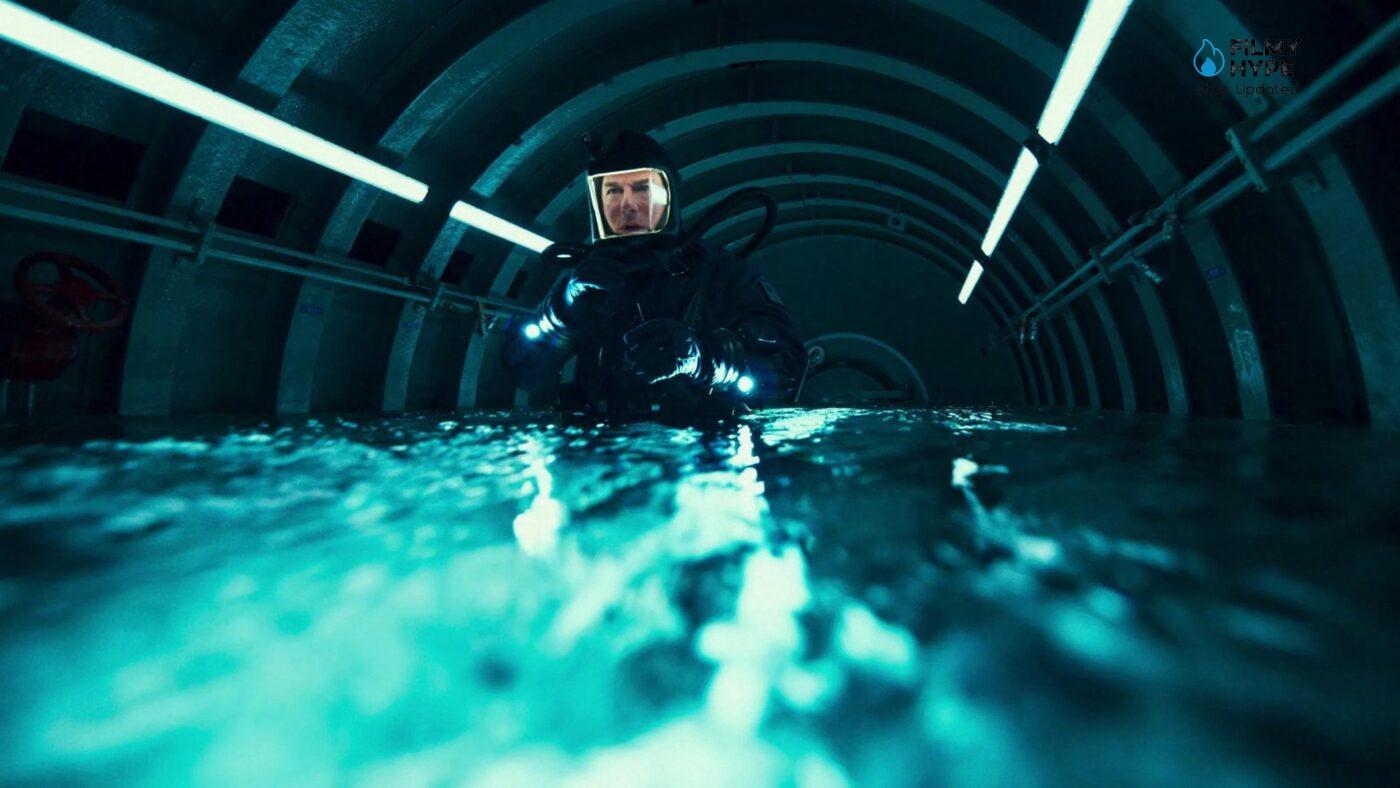
The price to pay to be reassured by Ethan Hunt is a Mission: Impossible light years away from Fallout’s freshness, from the paranoid complexity of the first chapters, so snooping under the sparkling blockbuster surface of the years ‘90. A little’ as happened in the last John Wick, Ethan transcends the boundaries of mortality, giving intense looks and convincing the President of the United States to give him the command of a submarine, yielding to the rhetoric of the action not very inspired in history, all flags and men and women in uniform who wish you good luck. In short, Mission: Impossible desperately wants us to believe that Tom Cruise, with the help of Paramount, McQuarrie, and his loyalists, can still save mainstream cinema on its own. However, he forgot that one never runs away from the most important goal: to make a fun, spectacular, successful film, which one looks at and perhaps willingly concerns, which makes the magic of cinema tangible, merging new ideas and proven recipes.
Mission: Impossible – The Final Reckoning Review: The Last Words
Ethan Hunt still has all the necessary determination, but the film is not always in step with him, especially in the first hour (out of three) a little overflowing with chatter. If this is the final chapter of Tom Cruise’s reckless exploits around the planet, then yes: Final Reckoning is a worthy farewell. Maybe he doesn’t reach the absolute peaks of the saga, but he goes close to it. His narcissism is, after all, deserved. Or at least, it is an excess that can be forgiven to those who have put their safety into play to give us such spectacular shows. I hope my friend likes it. And I hope you like it too. With an unexpected flash, which even surpasses the gaps in the script, Chris McQuarrie and Tom Cruise make the most spectacular ending possible for the Mission: Impossible saga. A farewell that leaves more questions than answers, but that allows you to observe the reality and the world in which we live with an epic sight, to say the least.
Cast: Tom Cruise, Hayley Atwell, Ving Rhames, Simon Pegg, Pom Klementieff, Esai Morales, Henry Czerny, Angela Bassett
Director: Christopher McQuarrie
Filmyhype.com Ratings: 4/5 (four stars)



